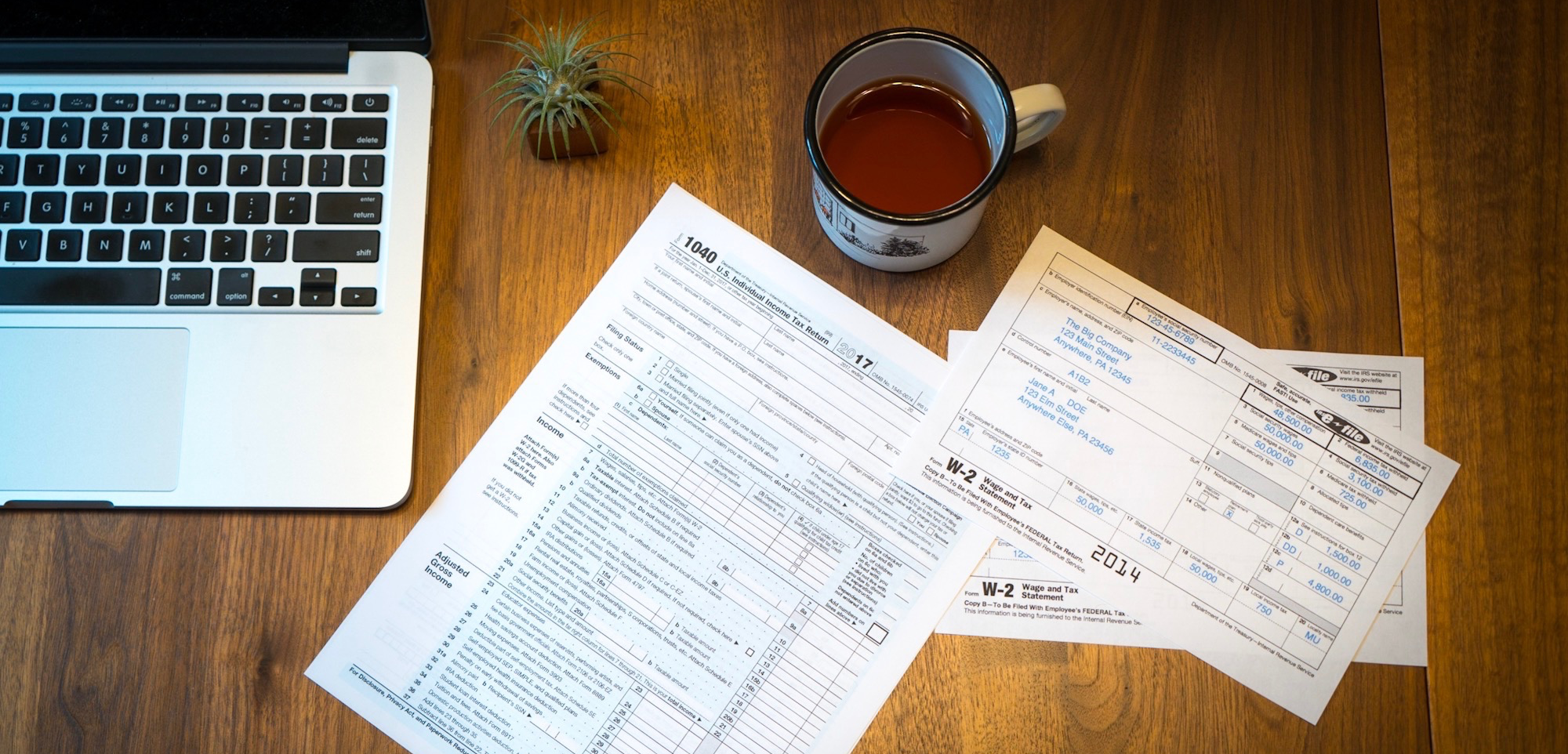5 Tax Tips from Edmonds Tax Pros
Tax season is upon us, and with that April 17th deadline looming (yes, we get an extra two days in 2018), we thought we’d ask two of our local Edmonds tax pros to answer our tax questions.
Chris Fleck of Puget Sound Tax Services and Nancy Duffy of McDevitt & Duffy, CPAs offered their expertise with these five tips.
Ed!: Is the new tax bill that was recently passed going to affect people’s 2017 tax filings? If so, in what ways?
Chris: Nope, almost all the new law’s provisions take effect with the 2018 tax year. One big (for some) provision though does not start until 2019—that is for alimony agreements. Any contract entered into after 12/31/18 will not allow the payor to deduct alimony payments but it will not be taxable to the recipient either. Currently, the payor deducts the payments and the recipient has to report them as income. Also, any agreement modified after 12/31/18 will have to follow the new law.
Nancy: On 12/22/17, President Trump signed into law the Tax Cuts and Jobs Act (TCJA). Will the TCJA affect your 2017 tax return? For the most part, no. Most of the individual tax changes apply to tax years 2018–2025. However, there are a few provisions that may affect your 2017 return. For example, you can deduct medical expenses to the extent they exceed 7.5% of your adjusted gross income.
Ed!: What is the number one thing people forget to include in their filing that may get it flagged by the IRS or a deduction people miss?
Chris: Investment income from mutual funds and stock accounts. It is really important to include all 1099s received as the IRS computers are good at matching the information. These days a lot of people do not get paper copies mailed to them but have to download the year end statements themselves and it is easy to forget about an account (until the IRS reminds you 18 months later).
Nancy: All of the “tax information” forms that you receive (W-2’s, 1099’s etc) are also sent directly to the IRS. If the information on your tax returns is different from these forms, you can expect a letter from the IRS. So double check the numbers before you file and save yourself the headache of having to reply to the IRS.
Ed!: Should people attempt to prepare their own tax returns? If so, what tool do you recommend?
Chris: One that I suggest to clients for their kids with first jobs is the IRS Free File feature on their website IRS.gov. Of course, I do not think people should prepare their own returns.
Nancy: Tax preparation has become more and more complicated. Thank goodness for good tax preparation software like TurboTax.
Ed!: When is it best to hire a tax expert?
Chris: Whenever there are these complications and others—rental property, their own businesses, kids in college, investments etc. A lot of my clients are perfectly capable of preparing their own returns but want someone else to do the work, take responsibility of any issues with the IRS, and give them peace of mind that the return has been prepared professionally by a licensed Enrolled Agent who has been in business for over 25 years.
Nancy: Hiring a CPA comes with a cost, but if you find the right fit, you will develop a relationship over time with a trusted advisor. Often the cost of a CPA is offset with tax saving strategies you may have not known on your own. In addition, a good CPA can offer financial strategies that can make a material difference in your financial life. This is a personal service and there are many good CPAs so take the time to find someone who you feel comfortable relating to.
Ed!: Any advice on when people consistently get big refunds year after year. Is there a better use of that money during the year?
Chris: I think the way people manage their money is their own business but I do point out to them that they could use the overpaid taxes throughout the year instead of waiting for a large check in the spring. Several of my clients use it as an enforced savings account and they would otherwise spend the small extra amount in each paycheck. There are ways for employers to direct deposit into the employee’s savings account as well as their checking accounts like they are doing now. Instead of giving the IRS an extra $250 per paycheck that turns into a $6000 refund, the payroll department can deposit that $250 into a savings account for the employee.
Nancy: When you get a tax refund it is because YOU overpaid and the government is just holding onto YOUR money, waiting to pay you back. Personally, I like to get a tax refund every year. For me, if I had an extra $50 every week – that money would probably get spent on lattes, a glass of wine or something my daughter “needed” to have. But if I let the IRS “save” it for me, I get a $2,600 tax refund…any maybe that will become my trip to Maui. There isn’t one “right” answer, everyone is different.
Thank you to Chris of Puget Sound Tax Services and Nancy of McDevitt & Duffy, CPAs for helping us out. If you need help preparing your 2017 tax return, we encourage you to look local first!
Written by Kelsey Foster, photography by Matt Hulbert






